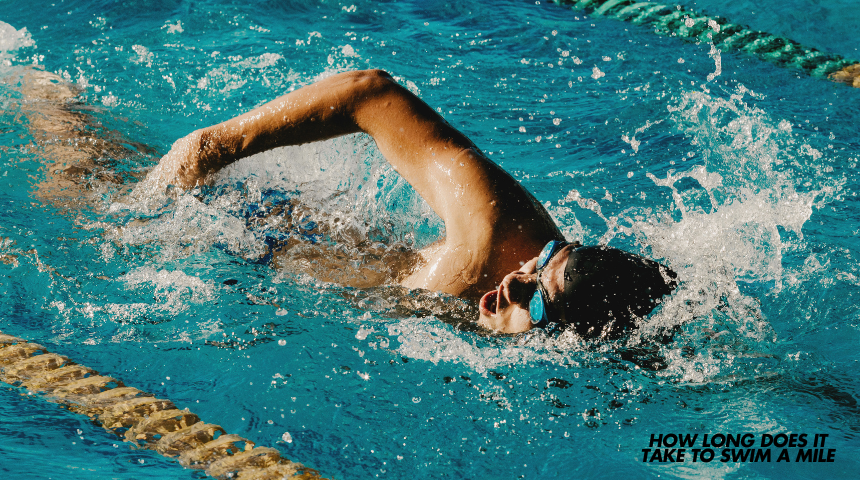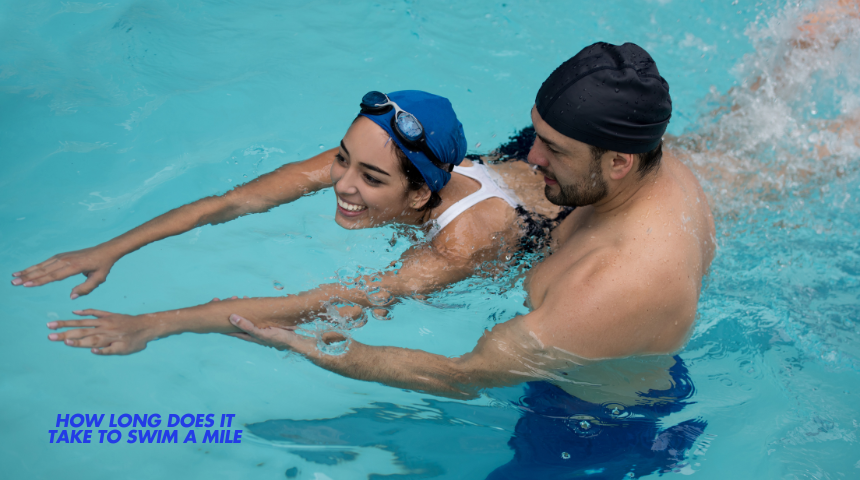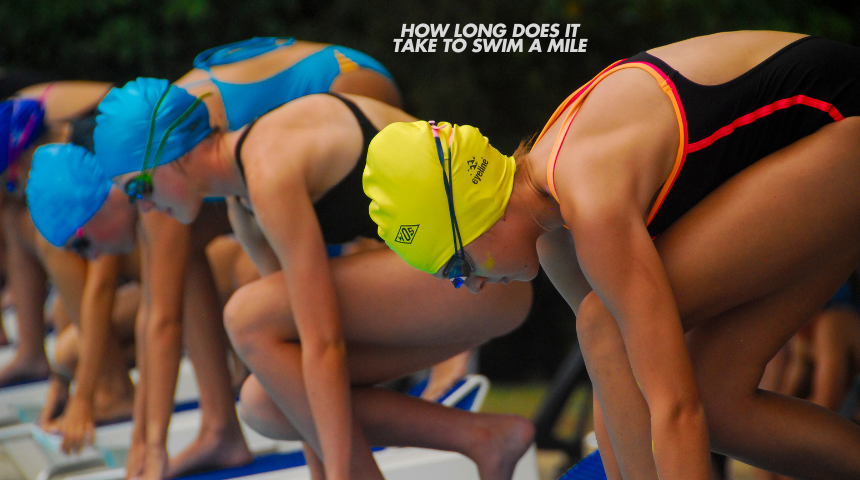As a swim enthusiast, I often get asked how long does it take to swim a mile. The answer can vary depending on skill level, fitness, and technique. I’ll break it down for you in simple terms.
Whether you’re a beginner or an experienced swimmer, the time can range from 20 to 40 minutes. Factors like swimming style and water conditions also play a big role.
I’ve seen some shave minutes off with proper training. Don’t worry if it takes longer; improvement comes with practice. Let’s dive into what affects your mile time and how you can get faster!
How Long Does It Take To Swim A Mile?
Swimming a mile can take 20 to 40 minutes, depending on your speed, technique, and fitness level. Experienced swimmers usually finish in closer to 20 minutes. Beginners might take longer, around 30 to 40 minutes.
Your swimming style matters too; freestyle is the fastest, while breaststroke is slower. If you’re improving your time, focus on building endurance and refining your technique. Don’t rush; consistency in practice will help you get faster over time.

Swimming a mile is a significant milestone for many swimmers, whether you’re a beginner, an experienced athlete, or somewhere in between. Understanding how long it takes to swim a mile can help set realistic goals and track progress.
In this blog, we’ll explore the factors influencing swim time, average times for different skill levels, and training tips to improve your performance.
Factors Influencing Swim Time
1. Fitness Level
Your cardiovascular fitness and muscle strength play crucial roles in determining how quickly you can swim a mile. Swimmers with higher levels of fitness can maintain a faster pace and swim more efficiently over a long distance.
2. Swimming Technique
Efficient stroke technique is essential for reducing drag and conserving energy. Freestyle is the most common stroke used for distance swimming due to its efficiency, but other strokes like backstroke can also be used. Proper technique can significantly impact your swim time.
3. Experience and Skill Level
Experience in swimming and skill level greatly affect how long it takes to swim a mile. Beginners may take longer due to less efficient strokes and lower endurance, while experienced swimmers can cover the distance more quickly thanks to better technique and training.
4. Pool vs. Open Water
Swimming in a pool offers controlled conditions, while open water swimming can present challenges such as currents, waves, and varying temperatures. These factors can slow down your swim time in open water compared to a pool.
5. Age and Gender
Performance trends show that younger swimmers tend to have faster times, but many adults also achieve impressive swim times with consistent training.
Additionally, there are differences in swim times between genders, with males typically swimming faster due to higher muscle mass and cardiovascular capacity.
Average Swim Times For A Mile
1. Beginners
For beginners, swimming a mile can take 45 minutes to an hour or more. The key focus for beginners should be on building endurance and improving technique.

2. Intermediate Swimmers
Intermediate swimmers with moderate experience and training can expect to complete a mile in 30 to 45 minutes. Incorporating interval training and refining stroke techniques can help reduce this time.
3. Advanced Swimmers
Advanced swimmers, including competitive athletes, can swim a mile in under 30 minutes. Their rigorous training schedules and advanced techniques enable them to maintain a fast and efficient pace.
Training Tips To Improve Mile Swim Time
1. Developing a Training Plan
Consistency and progression are essential for improving swim times. A sample training schedule might include:
- Warm-up: 10-15 minutes of easy swimming
- Main Set: Interval training (e.g., 10x100m at a challenging pace)
- Cool Down: 10 minutes of easy swimming
2. Technique Improvement
Improving your stroke efficiency is crucial. Drills such as “catch-up freestyle” and “finger drag” can enhance your technique. Additionally, focusing on proper breathing techniques can help maintain a steady rhythm and prevent fatigue.
3. Building Endurance
Incorporate both interval and distance training into your routine. For example, alternate between long, steady swims and shorter, high-intensity intervals.
Cross-training activities like strength training and running can also boost overall endurance.

4. Nutrition and Hydration
A balanced diet rich in carbohydrates, proteins, and healthy fats fuels your training sessions. Staying hydrated is equally important, as dehydration can negatively impact performance. Drink water before, during, and after your swim.
Real-Life Examples And Case Studies
Many swimmers have shared their progress and achievements in swimming a mile. For instance, a beginner who started with a mile time of 60 minutes may reduce it to 45 minutes within a few months of consistent training.
Analyzing swim times from competitions can also provide insights into what’s achievable with dedication and practice.
FAQ
How long does it take for a beginner to swim a mile?
It usually takes 40-50 minutes for beginners.
What’s a good time to swim a mile?
A good time is 25-30 minutes for regular swimmers.
How fast do professional swimmers complete a mile?
Professionals swim a mile in 15-17 minutes.
Does swimming gear affect mile times?
Yes, streamlined suits and goggles can improve speed.
How can I improve my mile swim time?
Practice often, focus on technique, and build endurance.
Conclusion
Swimming a mile is a rewarding challenge that requires a combination of fitness, technique, and consistent training.
By understanding the factors that influence swim time and implementing effective training strategies, you can set realistic goals and see significant improvements in your performance.
Swimming a mile takes effort, practice, and patience. Whether you’re aiming for a quick lap time or enjoying the water at your own pace, every swim is progress. Consistent training will help you build speed and endurance over time.
Don’t rush the process; focus on improving your technique. Set realistic goals, and celebrate every milestone. Track your time regularly to measure progress and stay motivated. Remember, swimming is as much about the journey as the destination.
Dive in, have fun, and let the water guide you. Your mile time will improve as you enjoy the rhythm of the swim.